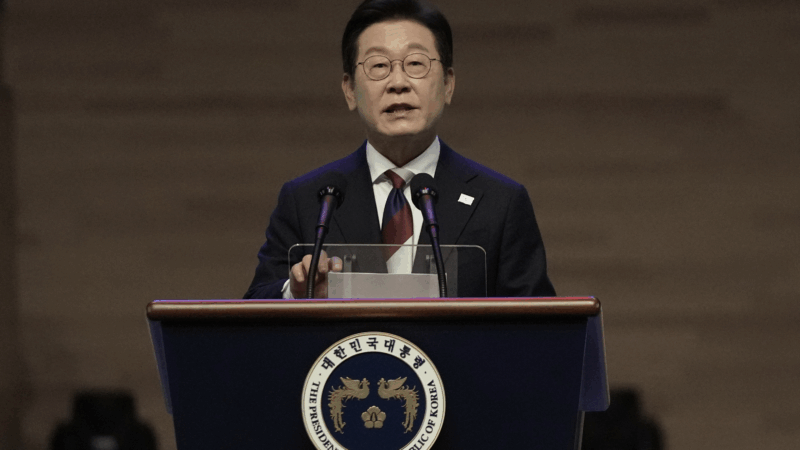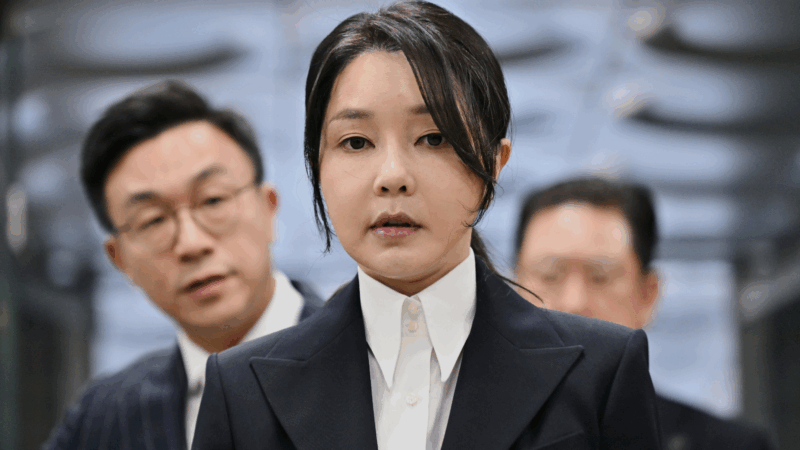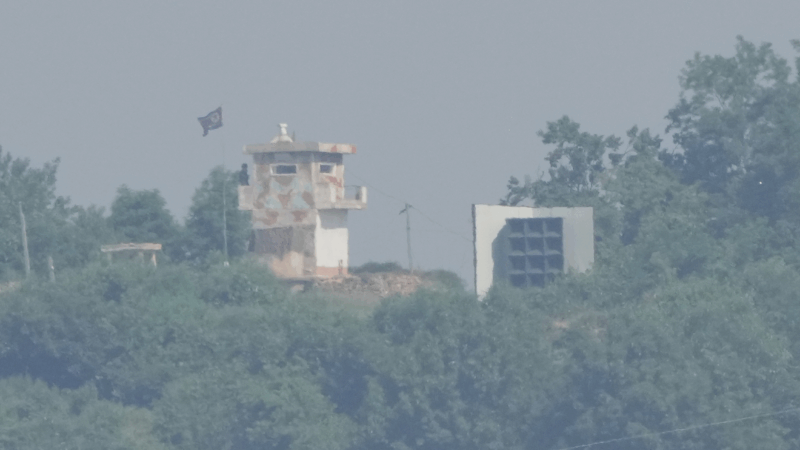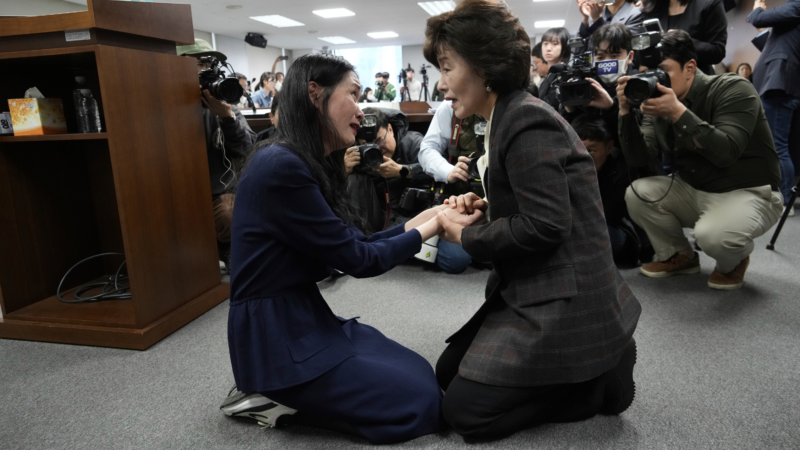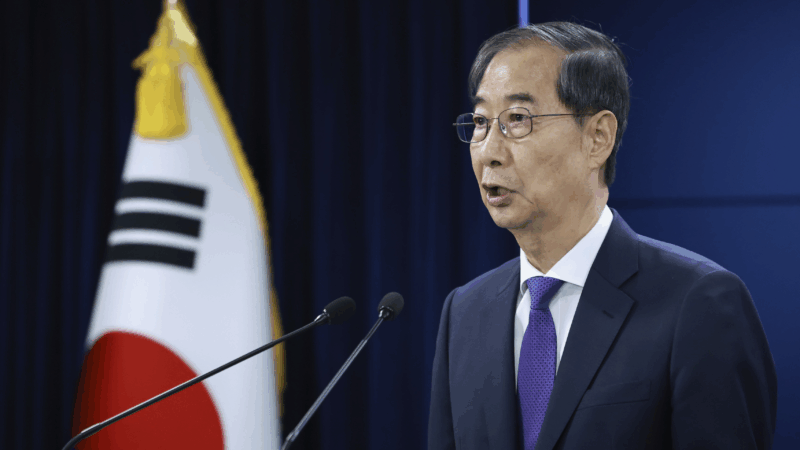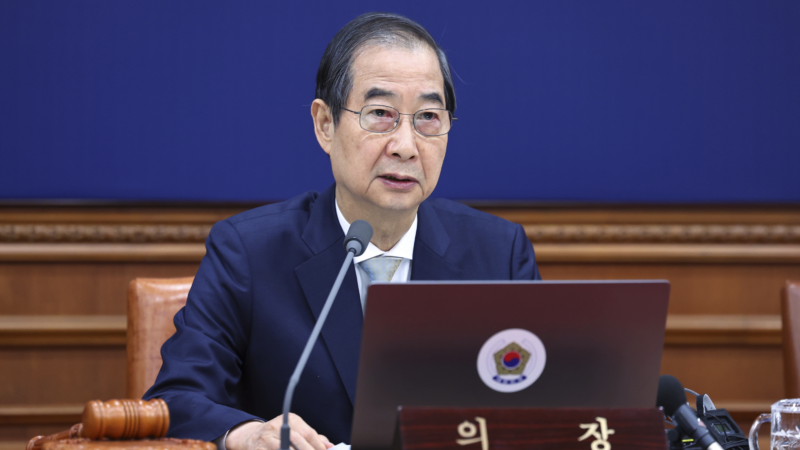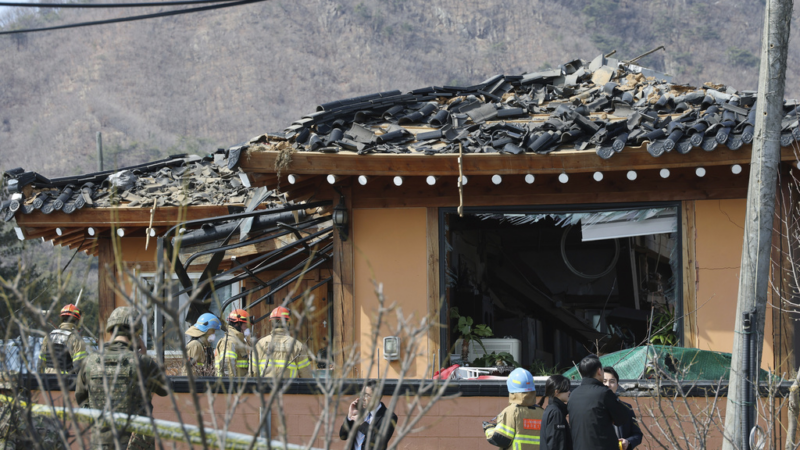South Korea
Nuclear submarine arms race heats up between North and South Korea
North Korea's state media released photos Thursday of what it said was the hull of a nuclear submarine. Its leader denounced South Korea's plans to build its own subs as "an offensive act."
South Korean workers detained in immigration raid leave Atlanta and head home
A plane carrying more than 300 workers from South Korea who were detained during an immigration raid at a battery factory in Georgia last week left Atlanta around noon Thursday, bound for South Korea.
Hundreds of South Koreans are among 475 detained in a Georgia immigration raid
"The business activities of our investors and the rights of our nationals must not be unjustly infringed," a foreign ministry spokesman said after about 300 South Koreans were detained.
South Korean President Lee to meet with Trump in Washington on Monday
At a summit meeting in Washington, D.C. on Monday, the U.S. and South Korean presidents will discuss modernizing their 71-year-old alliance and fleshing out a trade deal reached last month.
Wife of South Korea’s jailed ex-President Yoon arrested over corruption allegations
Investigators say the former president and first lady exerted undue influence on the conservative People Power Party to nominate a specific candidate during a 2022 election.
North Korean crosses the heavily fortified border to South Korea
South Korean authorities plan to investigate the border crossing and did not immediately say whether they view the incident as a defection attempt.
South Korea halts propaganda broadcasts along border with rival North
The South resumed the daily loudspeaker broadcasts in June last year in retaliation for North Korea flying trash-laden balloons toward the South in a psychological warfare campaign.
K-pop group BTS set to reunite as two more members complete military service
BTS has been on a break since June 2022 to focus on solo projects and serve in the South Korean military. All of the group's members are scheduled to finish mandatory enlistment by the end of June.
South Korean maestro Chung will be the first Asian to head Italy’s famed La Scala
Myung-Whun Chung will be one of the first non-Italians to take the post of music director at Milan's famous opera house.
Months after a martial law crisis, South Koreans will elect a new president
Whoever is elected, the new president will have little time for celebration.
South Korea halted its adoption fraud investigation. Adoptees still demand the truth
The suspension of the Truth and Reconciliation Commission raises questions about future efforts to investigate the country's foreign adoption program.
South Korea’s acting leader Han resigns amid reports he will run for president
Acting President Han Duck-soo has emerged as a potential conservative standard bearer, and South Korean media reported he will officially launch his presidential campaign Friday.
South Korea’s president removed from office over ill-fated declaration of martial law
South Korea's Constitutional Court removed impeached President Yoon Suk Yeol from office on Friday, ending his tumultuous presidency and setting up an election to replace him.
South Korean court reinstates impeached PM Han Duck-soo as acting leader
Many observers said Monday's ruling on Han Duck-soo doesn't signal much on the upcoming verdict on President Yoon Suk Yeol, as Han wasn't a key figure in Yoon's martial law imposition.
Court orders South Korean President Yoon released from jail
The decision would allow Yoon to stand his criminal trial while not being physically detained. The court is expected to rule soon on whether to uphold his impeachment or remove him from office.
Fighter jets accidentally drop bombs during exercises, injuring 8 South Koreans
The air force said the jets were taking part in a drill with the U.S. military in Pocheon, a city close to the border with North Korea, when they dropped bombs just outside a firing range.




